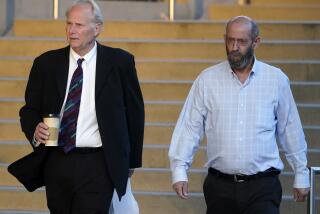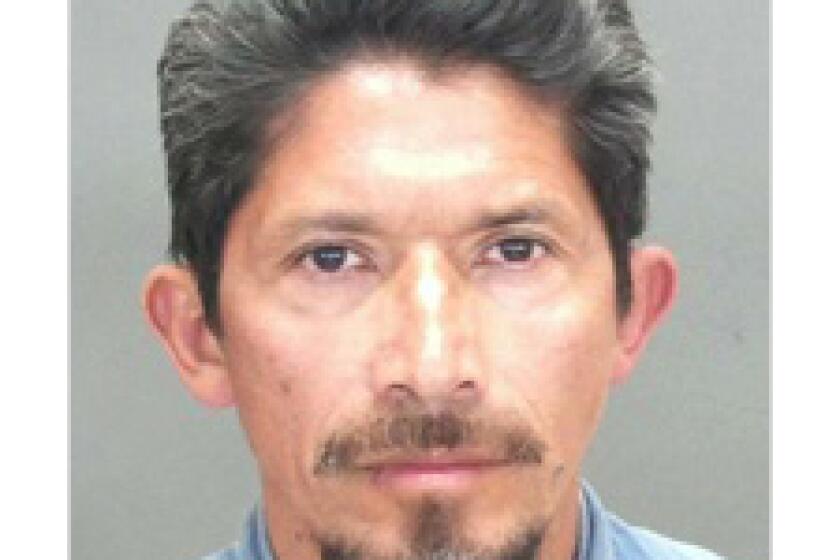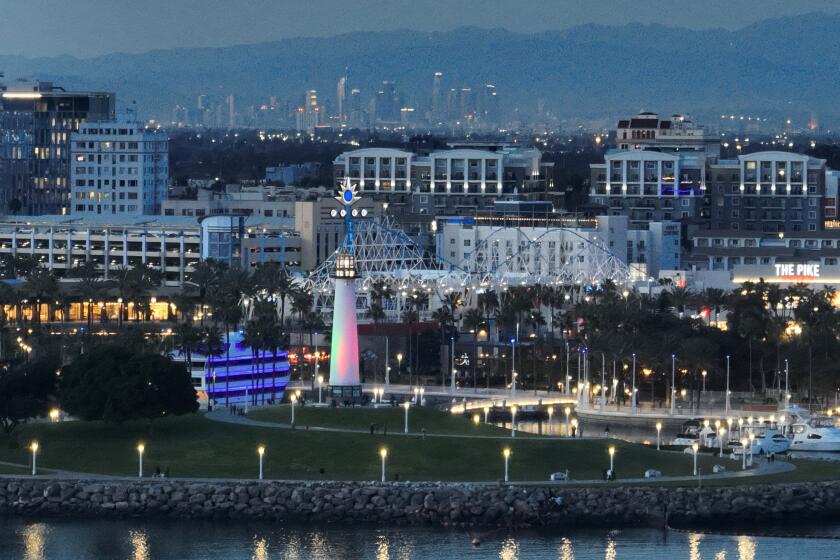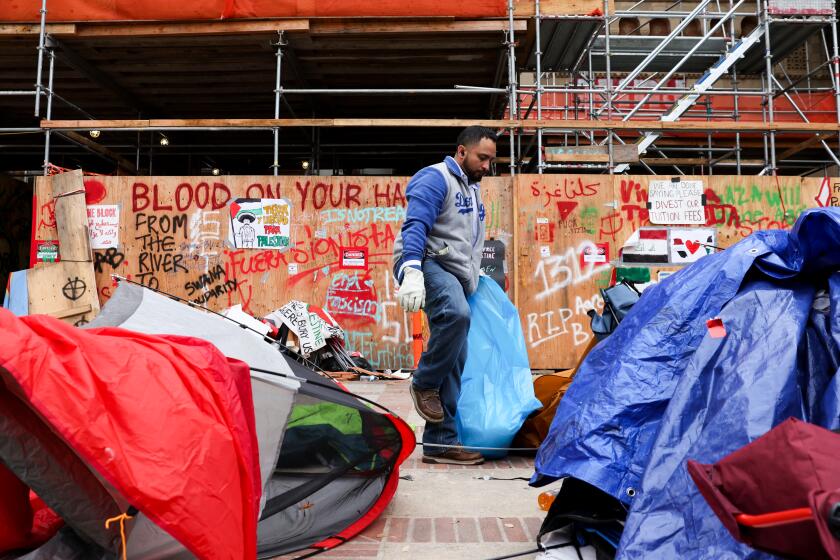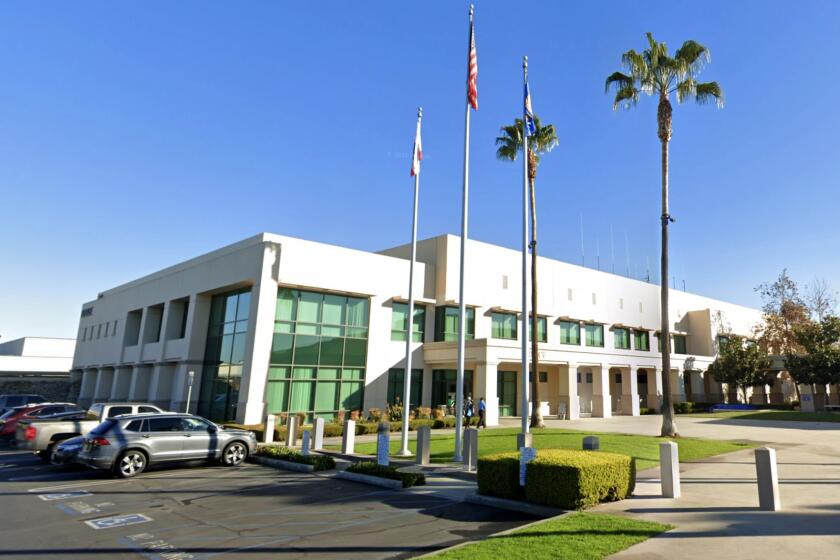Port of L.A. Covers Its Petroleum Coke
After years of public outcry, lawsuits and environmental studies, politicians and officials at the Port of Los Angeles announced Thursday that all petroleum coke piles at the port have been covered.
Assemblyman Alan Lowenthal (D-Long Beach) and representatives of the South Coast Air Quality Management District and the Los Angeles Export Terminal held a news conference Thursday to announce the completion of an enormous storage barn on Terminal Island that will house the potentially carcinogenic petroleum coke piles.
The piles are now covered by the $7.5-million storage barn, which is 105 feet tall and 240 feet wide. The barn was built by the export terminal, which handles about half of the 5 million tons of coke shipped out of the ports of Los Angeles and Long Beach every year.
Petroleum coke, a coal-like byproduct of the oil refining process, is exported to Asia for use as an industrial fuel. If inhaled in sufficient quantities, the material can cause cancer, officials said.
“They’d put it in these huge piles ... and it would blow on the community,” Lowenthal said. When he first got elected to the Long Beach City Council in 1992, residents near the port complained to him about the dust on their windows and boats, he said.
Studies have shown a link between elevated levels of coke dust in the air and the deaths of people with respiratory illness and heart disease. An early study in Long Beach showed that coke dust comprised 12% to 15% of air pollutants.
“We ship out some of the worst stuff in the world,” Lowenthal said.
Officials at the Los Angeles Export Terminal had argued that installing roofs over the coke piles would be too costly, and they said that dust was being controlled by sprinklers and other devices.
In 1998, the terminal began building two $20-million concrete domes covering 75,000 tons of coke each, said Jim Holland, vice president of operations.
Subsequent regulations by the AQMD mandated full enclosure of the coke piles awaiting shipment that, at that point, were not covered.
The new rules required equipment and procedural changes by January 2004 to facilities and trucks that handle petroleum coke. A bill introduced by Lowenthal and signed by Gov. Gray Davis two years ago advanced the deadline to next month.
The Los Angeles Export Terminal “has always wanted to work with the community,” said Gerald Swan, the terminal’s president. “We are committed to a clean environment, and I hope that the vast sums of money we have spent will render that very end.”
The Port of Long Beach has until Jan. 1, 2004, to cover parts of its antiquated loading machinery.
More to Read
Start your day right
Sign up for Essential California for news, features and recommendations from the L.A. Times and beyond in your inbox six days a week.
You may occasionally receive promotional content from the Los Angeles Times.

